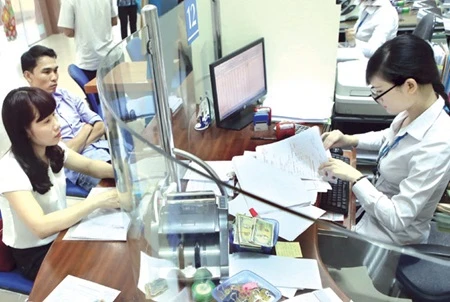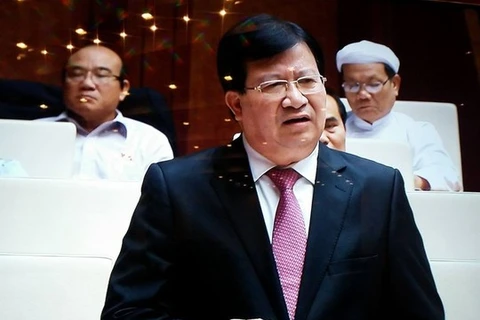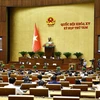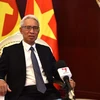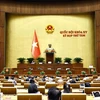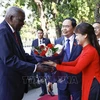Hanoi (VNA) - Controversy over criminal suspects' right to silence and a regulation on the compulsoriness of audio and video recordings during investigations divided National Assembly deputies at a discussion session on the revised Criminal Procedure Code on November 6.
Nguyen Van Hien, Chairman of the National Assembly (NA) Judicial Committee, said a report from his committee showed that the majority of deputies agreed that criminal suspects should be afforded the right to remain silent.
However, some deputies expressed their concerns that the regulation will hinder the investigation and affect the prevention of crimes, especially in important cases.
"If the suspect, who is the ringleader, can remain silent, how can we find out the accomplices and prevent the crimes effectively?" asked Deputy Pham Truong Dan from the central province of Quang Nam.
Dan continued, asking "If it is a corruption crime, how can we collect evidence in a timely manner and recover State property? If it is a murder, how can we find exhibits for the case?"
Many deputies agreed with him.
Dan also expressed concern over a proposed regulation that will make audio and video recordings compulsory during investigations.
"Every year, investigation agencies have to handle about 100,000 criminal cases with more than 150,000 to 160,000 suspects," he said. "The recording equipment for all cases may cost dozens of billions of dong."
Deputy Huynh Ngoc Anh from Ho Chi Minh City objected to his opinion, stating that the regulation on recordings, proposed by the Ministry of Public Security, is financially feasible.
Anh suggested allowing some exceptions and only applying the regulation to serious cases in which the suspects claim innocence right from the beginning; suspects claim they are forcibly extorted or subjected to corporal punishment; and suspects face harsher punishments of life imprisonment or the death sentence.
For example, he said a simple case may have at least five rounds of interrogations, which takes at least five hours each.
"How can the data of recordings be preserved afterwards?" he asked, calling for clearer regulations on the matter.
Anh also said regulations should adequately cover cases in which there are no recordings, in order to determine how they will be handled in court.
Deputy Bui Van Xuyen from the northern province of Thai Binh shared the same opinion, stating that recordings are necessary and prevent wrongdoing during the interrogation, but they are not necessary for all cases because the equipment and human resources are costly.
"To avoid forcible extortion for confessions or corporal punishment during an investigation, it is important to enhance the knowledge and ethics of investigators and prosecutors," he said.
He suggested making recordings during interrogations without lawyers.
The draft Criminal Procedure Code is slated to come to a vote on November 28, the last day of the 13 th National Assembly’s 10th session.-VNA


